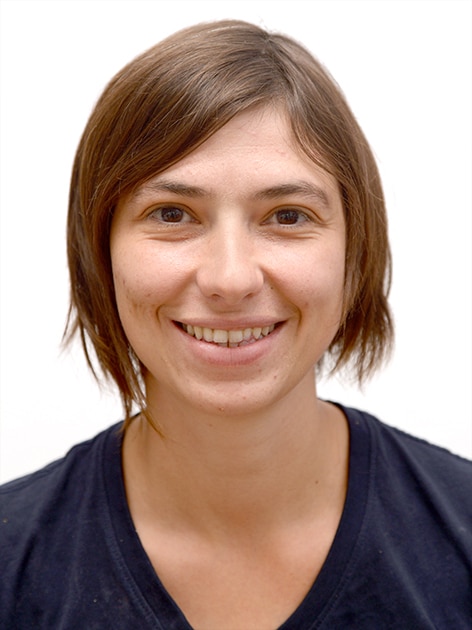We interviewed Dr. Chloe Prodhomme, Climate Scientist at Cervest on her experience and thoughts on women in tech.

1. What does your job involve?
I’m a Climate Scientist at Cervest. My job involves translating scientific data into Climate Intelligence to help organizations adapt with climate change.
2. What made you choose a career in technology?
I always wanted to be a scientist. When I was younger I wanted to become a planetologist. I was especially fascinated by Venus. Despite its hostile conditions – sulphuric acid rain, average temperatures of more than 400 degrees Celsius – Venus is very similar to earth. In fact, some people say it would be easier to terraform Venus than it would be to terraform Mars. Terraforming being the process of artificially changing a planet’s atmosphere and climate to make it more hospitable to human life.
But during an internship studying Sea Surface Salinity at the Ifremer (Brest, France), I realized that Earth was also a planet full of mystery. I became particularly interested in the ocean. We know very little about how it interacts with the atmosphere, what happens below the surface, and so on.
In my PhD, I investigated the relationship between ocean and monsoon systems. Specifically, I found that the onset of monsoons was strongly controlled by the Pacific Sea surface temperature.
3. Did you study an IT or technology related subject at GCSE, A-Level or University?
At university I studied mathematics and then mathematics applied to physics.
Mathematics is great. I love its world of abstraction. Plus, life is so easy in the math world. Everything is either true or false. In real life, things are a lot more complex.
Also, if you have a math background, you can easily move on to many other fields. If you understand math, you understand physics, computer science, statistics, and a range of other topics. I really enjoyed that flexibility, and the option to pursue other areas of study and interest.
4. Did you get any work experience in IT or technology before this job?
Yes, before joining Cervest I spent approximately 10 years in academia; three getting my PhD and eight doing post-doctoral research.
5. Do you think there is a lack of females in the IT and tech sector?
There is definitely a lack of women in the tech sector. Especially when you look at technical roles or high-level positions like department heads and European projects leads in academia.
The lack of female representation creates several issues. For one, it means women have less influence over the development of technology, which can result in biased tools and solutions that ignore the needs of female users. This problem is especially acute in male-dominated fields, like IT infrastructure. Underrepresentation can also create highly competitive working environments, which care little for family life and mental health. These environments can be especially challenging for young mothers.
6. Do you find there is a stereotype that a career in IT or technology is just for men?
Absolutely! I distinctly remember one of my old teachers saying to me ‘women can’t be math geniuses’. Girls are rarely encouraged to study math, physics, let alone computer and engineering sciences. Of the world’s most famous scientists, very few are women. That’s mostly because, until relatively recently, women were not even allowed to study science at a professional level. When they did make breakthroughs, they were often ignored or stolen. Of course women can be very good scientists and engineers! Yet these outdated stereotypes linger on. Our society must break this bias and give women the recognition they deserve.
7. What would entice women to study technology related courses?
There are lots of things we can do. One important step would be to help more women stay in technology-related careers, by giving mothers more flexibility, for example. Remote and flexible working can be really helpful when you’re a young parent. It has certainly helped me while working at Cervest. If more women are given the support needed to thrive, girls would have more role models to look up to, making it easier to follow in their footsteps.
Schools should prevent discrimination against girls that are interested in math, physics and computer science. Teachers should be conscious of bias and help to build girls’ confidence in these subjects.
The media should also pay attention to gender balance when choosing which experts it profiles. And there should be a better gender balance in advertising, with more girls shown playing with chemistry sets, microscopes, and other scientific toys.
Those are just a few ideas. Really, what is needed is a wholesale change to how our society views women and girls’ relationship with science. We must also erase the idea that women are predestined to take care-orientated jobs. Girls are good at other things. Also, the tech industry would gain a lot by having a more care-orientated view, especially when dealing with issues like the climate crisis.
8. Are there barriers when it comes to women getting into tech?
It’s getting harder and harder to find permanent positions in academia. You usually have to move to find a new postdoc or fellowship, which means getting yourself out there on the academic circuit. The issue is, applying to fellowships and tenure tracks, going to conferences, and working during weekends and evenings is really challenging when you have a baby. This is one of the reasons I was so happy to find my role at Cervest, and why I am so glad to see more roles opening up for scientists outside academia, especially in climate technology.
I also think it is harder for women to convince her family to follow her in another country when she is offered a position there. Additionally, applying for funding and fellowships is an important part of the work. This is very competitive and doesn’t fit with my nature. That is why I focused my academic career on collaboration, not competition – a sentiment I carry with me into my work every day.
Overall, I am very proud of my time in academia. But I am also extremely happy to be at Cervest. Working here means I can still pursue my passion for climate science and mathematics, in a very collaborative environment, while also supporting women and diversity.
9. How could we encourage more women to start a career in tech?
I think encouraging even more women to come join us at Cervest would be a great start!
More generally, we need to work on communicating the benefits of a career in technology and highlighting the kind of projects women can work on. For me, one of the main benefits of working in tech is that it gives you a stimulating job that will continue to teach and challenge you throughout your life. It’s also a career that lets you travel and meet brilliant people from different cultures and walks of life.
Honestly, I love my job! I’ve had hard moments during my career, but overall, I am very happy doing what I do. To anyone considering a career in technology, I would say it’s not always easy, but if you can track down the right job, you’ll find yourself working on things like expanding human knowledge, improving peoples’ quality of life, and limiting the impact of climate change. No, I am not solving climate change on my own, but I have spent my whole career working on tools that could help mitigate its impacts. I’m really proud of that!
10. What advice would you give to young women at the start of their career?
The best piece of advice I can give is to increase your statistical and programming skills. That is most of our job, afterall.
And also to do your best. Don’t give up when things get tough. Trust yourself. You can do it!



